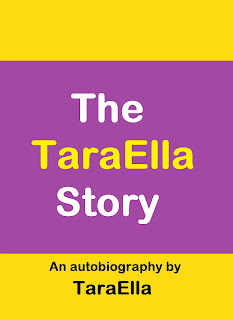Cancel Culture and Free Speech
Welcome to Moral Libertarian View, a program where we discuss news events that are worth looking at from the point of view of the Moral Libertarian idea, that is, every individual should have Equal and Maximum Moral Agency in their lives. I hope you subscribe if you are interested.
Today, I want to take another look at the ongoing drama surrounding some comments made on Twitter by Natalie Wynn of ContraPoints. I've already responded to the substance of the comment a few days ago, so I won't be looking at that now. What I want to explore is why a few comments from one personality have gotten some parts of the internet so fired up, and what implications this may have for the rest of society. Since we last looked at the issue, the conflict between supporters and critics of Natalie has only gotten worse, and Natalie even disabled her twitter account. Meanwhile, even many normally 'woke' people have looked on in disbelief, commenting along the lines of, 'if ContraPoints is not woke enough for you, then you've really got a problem'.
Many also said something about the 'cancel culture' of the left having gone way too far, which of course, I totally agree. If anything, I think the latest incident shows that the situation for free speech is even worse than just a few years ago. Back in 2016, it used to be more along the lines of cancelling men who questioned contemporary feminism, but today, apparently a trans person talking about something that triggers her own gender dysphoria has also become fair game. But then, I had actually been warning people about this possible development even back then. This escalation is actually inherent in the postmodern and critical theory ideologies that are used to justify restrictions on speech in the first place. Furthermore, if we don't have a serious conversation about it, I can guarantee that it will get even worse.
Basically, the core problem lies in the belief that some speech is harmful, and should not be allowed. This idea is probably influenced by several sources, including the postmodern belief that discourse itself is power and hence capable of oppression, and the general critical theory-inspired view that certain common ideas represent a repressive cultural hegemony of the interests of the dominant classes. Furthermore, some increasingly influential conflict theories of sociology, which are inspired by the Marxian idea of society and history based on class conflict, are often used to justify the repression of unwanted speech by so-called privileged groups. As to who is privileged and what speech is harmful, there really is no clear definition or limit. As I said, back in 2016, it was men with 'male privilege' criticizing feminism; today, it's apparently conventional trans women with so-called 'passing privilege' criticizing the radical practice of 'pronoun consciousness'. In both cases, there's no fair judge of what constitutes harm; those who shout the loudest get to determine what's harmful, and the only justification needed is the identification of some kind of privilege. It's really an endless slippery slope.
The thing is, 'cancel culture' not only leads to a toxic society; it is also inherently against morality itself. According to the Moral Libertarian viewpoint, everyone should have equal and maximum moral agency because nobody is always right, and therefore, nobody should have the definitive moral standing to override another's agency. It logically follows that nobody has the moral standing to judge whether others' speech is harmful, and nobody has the moral standing to limit another's agency on the grounds of 'privilege'. It logically follows that the free speech position is the only consistently moral position. Therefore, from a Moral Libertarian viewpoint, the only morally sound way to counter speech you consider 'harmful' is by arguing against it rationally. At this point, you may argue that those voicing their opposition to certain speech are doing just that. But then, this wouldn't be the case if they clearly aren't interested in participating as equals in the arena of ideas, for example when there are calls for the de-platforming or cancellation of certain individuals. While the latest outrage against Natalie has not reached that level, those participating in the outrage clearly aim at stopping Natalie from saying similar things again, therefore it's more like a de-platforming than a debate in essence. Furthermore, the mass mobilization of outrage to overwhelm the capacity of one individual to respond is also inherently against another important rule in Moral Libertarianism, that where groups should never be allowed to combine their share of agency to overwhelm other individuals, lest there be a tyranny of the majority.
All this may sound like theoretical stuff, but as history has shown us again and again, the violation of Moral Libertarian principles always brings about actual harm. Hyperwoke left-wing circles are increasingly being compared to Stalinist dictatorship with its purging of anti-revolutionaries, and I don't think it's an exaggeration at all. In fact, the limitation of free speech and banning of certain ideas has already harmed society by creating an imbalance in the market of ideas, causing the public conversation to be biased in the direction of those with certain agendas. For several years now, many of us have been worried about what this might mean for dissident academics, critics of intersectional theory, or even non-custodial fathers, for example. Right now, the pronoun conversation is similarly being tilted towards the agenda of a certain brand of postmodern feminism and its goal of deconstructing gender, and against the needs of gender dysphoric trans people, as well as an increasingly confused general public. I fear that this won't end well at all.

